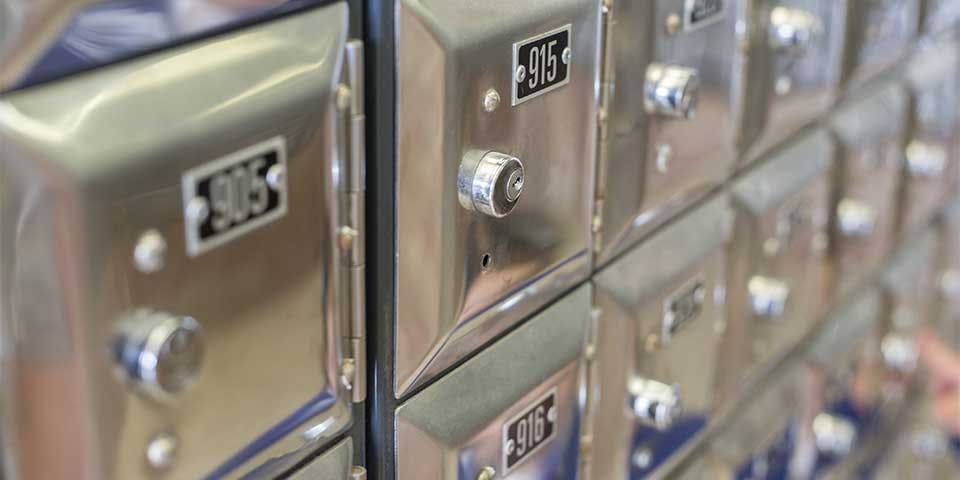25 April, 2022
Consider How to Start a UK Business as a Foreigner? Let Us Help You
The United Kingdom has long been a top destination for entrepreneurs looking to start a business. From its world-class infrastructure and access to capital to the incredible innovation happening in major cities like London, there are plenty of reasons why you might want to start your next business in the UK. But what if you aren't actually a resident there?

Starting a business in the UK can be a daunting process, but it's not impossible. If you're prepared to put in the hard work and do your research, your business will stand on a firm foundation, increasing your chances of success.
This guide will take you through the process of setting up your business from abroad, from choosing the right legal structure to registering with HMRC and everything in between.
What to Pay Attention to When Starting a Business in the UK as a Foreigner
If you run an existing company in another country and want to expand to the UK, you'll need to register with Companies House as an overseas company. The registration must be done within one month of opening the UK branch.
Just keep in mind that partnerships and unincorporated bodies are not eligible to register as an overseas UK company. If you need guidance on your eligibility, you can contact the Department for International Trade.
3 Steps to Opening a UK Business as a Foreigner
Here's a step-by-step guide on how to open a business in the UK as a foreigner:
- Obtain a Visa
Even with a visa, you are not obligated to live in the UK. It just gives you the opportunity to, but the choice is up to you. So, why do you need a visa if you're planning on residing in your home nation and running your business remotely?
Well, a visa doesn't just give you temporary residency — it also enables you to hire people that can work in the UK. What's more, it gives your business more legitimacy toward UK consumers. If you live overseas in, say, Germany, you can already sell to UK consumers through a German business. However, by fulfilling sales through a British business (which a visa enables), you appeal to their patriotism and trust.
There are a number of business visa options available to entrepreneurs looking to start a business in the UK. One option is the Innovator visa, which requires a unique business idea, a strict approval process, and access to £50,000 or more in investment funds. Furthermore, the fee for applying is £1,021. With this visa, you may stay in the UK for three years, if you so choose, and get an unlimited number of extensions.
Another option is to get a start-up visa. As with the Innovator visa, it must be different from anything currently on the market; however, you don't need to have investment funds. The fee is much lower, at £363. You may stay in the UK with this visa for 2 years. It can't be extended, but you can try to transfer to an Innovator visa.
If you are a leader in digital technology, arts, and culture, or academia, you may apply for a global talent visa, which must be endorsed by an authority in your field. If you are granted this kind of visa, you may live in the UK and work as a company director or as a self-employed individual for up to five years at a time.
- Choose a Business Type
Every business in the UK requires a legal structure, no matter the size of the business or where you actually reside. Even start-ups need a legal structure.
- Sole Trader: This is a self-employed person who is the only owner of their business. It's a simple, common business structure.
- Limited Company: This business structure has its own legal identity, which is held separate from its directors and shareholders. It can still be run by one person, who acts as a director and shareholder.
- Partnership: This business consists of two or more people sharing responsibility for the company. This means they share bills, losses, and profits. Each partner pays tax on their own share of the profits. Keep in mind: a partner doesn't have to be a living person. Since a limited company has its own legal entity, it can act as a partner.
Out of the options above, registering as a sole trader is the most common arrangement. Partnerships are the least common, as they are more complicated; they only make up 7% of all UK businesses.
- Register Your Business
After you choose your legal structure, it's time to register it with Companies House and/or HMRC for taxation. Remember, depending on your circumstances; it may not be necessary to register with Companies House; it's important to speak with an advisor to learn about your tax liability.
When you register a business in the UK as a foreigner, you won't have to do any extra steps; the process is the same as with UK nationals. Here's what you'll need to submit:
Sole Trader
- Company Name
- National Insurance Number (if you'll be living in the UK)
- HMRC Self-Assessment Registration
Limited Company
- Company Name
- Director Information
- Shareholder Information
- Documents of Formation
- Register with Companies House and/or HMRC
Partnership
- Company Name
- Nominated Partner Information
- HMRC Self-Assessment Registration
Key Considerations When Starting a Business as a Non-UK National
We have a few key considerations for you to review before setting up a UK company as a non-UK resident.
- Visa Considerations
First, while EU citizens were previously able to start a business in the UK without a visa, this is no longer the case. When the Brexit transition period ended, new rules started — meaning that now, all foreigners in the UK must apply for a work visa before starting a business there.
- Tax Considerations
Next, you must think about taxes. If your company is incorporated outside of the UK, you only have to pay corporation tax if you carry out business in a permanent establishment within the UK. In other words, if your conditions require you to register with Companies House, you must also pay corporation tax.
Furthermore, let's say you open a business in the UK as a foreigner, and you don't meet the requirements for corporation tax. You may still be required to pay income tax — but only on income generated within the UK. So, if your business makes income from consumers in multiple countries, you will only need to pay the UK tax on their share.
Also, keep in mind that overseas companies who have UK employees may need to register for VAT. If you are unsure of your potential tax liabilities, check out this comprehensive guide from the HMRC.
- Business Bank Account
Lastly, there is the consideration of a UK-based business bank account. Now, it isn't a legal requirement for foreign nationals to have a business bank account in the UK, but it can be really helpful! It allows you to avoid the considerable money movement fees that arise from local trade. You see, if you start a small business in the UK as a foreigner and then receive earnings at your domestic bank account in your home country, you'll be subject to hefty international transfer charges.
Starting a business in the UK? Don’t miss our comprehensive guide on How to Register a Company for all the key information.
Consider The Hoxton Mix Your Trusted Partner
If you want to set up a business bank account in the UK, you will also need a UK business address. If you have a physical branch within the UK, you can certainly use its address. But what if you don't have an official place of business? What if you register as a UK company as a non-resident but provide virtual services and work from home?
In such cases, a virtual business address is your best option. There are many benefits of a virtual office: not only can it be used to create a business bank account in the UK, but it can also be used to register with HMRC and Companies House. Alternatively, if you do have an office in a more obscure part of the UK, you can choose a virtual address in a prime area in London, thus establishing your company's credibility among potential clients.
If you're ready to apply for a cheap virtual business address to make your business ventures run more smoothly, The Hoxton Mix is here to help! We offer affordably priced plans that come with numerous features. Here are some reasons why The Hoxton Mix is well-regarded:
- Our process is easy and fast. You can apply for and receive a virtual business address in 10 minutes.
- We offer a top-quality postal code to add to your company's prestige.
- We don't charge any set-up fees, and our monthly subscriptions are budget-friendly.
- We offer company formation services — so you just have to apply for a virtual address, and we'll provide you with Documents of Formation (including Articles and Memorandum of Association), a Combined Register document, a Share Certificate, a Certificate of Incorporation, First Company and Minutes. We'll also provide expert support to answer any questions you may have about setting up a limited company online. This will make the process of starting a business as a non-UK national much easier!
Final Thoughts
In summary, the UK welcomes non-residents to set up business there! You will have to jump through an extra hoop by applying for a visa, but the actual company registration process is the same. Of course, as a non-resident starting a business in the UK, you will have to pay careful attention to tax liability, so make sure to speak with a financial agent. And lastly, consider applying for a virtual address and a business bank account in the UK.
If you want to learn more about how to obtain a virtual address, contact us; we'll be happy to give you more information!
FAQ
Can a foreigner start a business in the UK?
Yes! People of any nationality can start a business in the UK. There are a few different ways to establish a business in the UK as a foreigner: the primary schemes are sole trader, limited company, and partnership.
Do I need to reside in the UK to have a company?
No, this is not required. You can register as an overseas company and conduct your business from abroad.
What legal requirements are needed to start a business in the UK as a foreigner?
Wondering how to start a business in the UK as a foreigner? Well, first, you will need to apply for a visa. Then, you will need to select your company's legal structure and register your business. Check out the table in the article above; we've outlined the requirements for each business type! When you register a company in the UK as a foreigner, you will need to meet the same registration requirements as a national.
Hand-picked related articles
Our meeting rooms are located at our Paul Street office,
and it’s just a few minutes walk from Old Street tube station…
Our Address
3rd Floor, 86-90 Paul Street,London,EC2A 4NEDirections
Opening hours
Monday - Friday 9am - 18.00pm






![Best Registered Office Address Provider in the UK [2022 Ranking]](https://images.prismic.io/hoxton-mix/MzRjMzJmMmUtYzJmNi00NDhlLTg2YzctZjc0M2ViNGMzOGU5_201b0b3d-8f63-4205-860f-8d0bf1fc4553_best-registered-office-address-provider-in-the-uk--2022-ranking-list.jpg?auto=compress%25format&rect=120%250%25720%25480&w=960&h=640)

